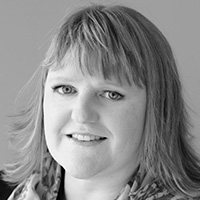
They keep telling us on TV, radio and every type of social media that “We’re all in this together”. I am pretty sure that based on the conversations still going on in the financial advice world that they are not referring to us.
We are being told by Government and ASIC that we are presenting a chaotic front to them. They don’t really know who represents the industry and they don’t have a consensus on what the priorities are. This gives them a perfect excuse to just run with their own agendas on what needs to be done and what the priorities are; and they are not matching up to the reality of what advisers are dealing with.
Do we all need to be part of the one Association and present a united front? Maybe, that’s not my call. I think Advisers have a right to have differences in the way they wish to work and operate. And it makes sense that there are different Associations with a different focus for members.
So what is that all Financial Advisers should unite over?
Instead of fighting over who has the best fee structure, or the right to be called independent, who has the biggest adviser network, who offers the best product suite, whose association is bigger or better, and who is superior out of wholistic advisers or specialists in their field, how about we all agree on one thing?
The one constant should be that clients are better off after seeing a financial adviser. People seek financial advice because they don’t know all the answers themselves. They have a problem (or problems) to solve and they are seeking solutions when they see a financial adviser.
The only advisers who are deficient are the ones who are not making clients better off. This is what the industry needs to remember and unite over. This small but dangerous portion of the adviser population are the ones who are bringing the industry down. When I review advice for clients and give them opinions and questions to go back to their adviser with, there is no silver bullet for which type results in the best or worst outcomes.
Being independent, or charging flat fees instead of percentage based, being self-licensed or being a member of a particular association is not resulting in better or worse advice overall. It is the care, research, strategies, communication, and outcomes that make advice good, ordinary or bad.
So, how about, instead of making a big deal about how good you are or how bad someone else is just because they do X or Y we just judge each piece of advice for each client on whether it makes them better off? If a client is happy they will tell someone else. If they aren’t they will tell multiple people and the consumer groups will use them as a megaphone. That is the reputation issue the industry has.
I would love to see you tolerate any other advice provider’s methods as long as the client is better off.
I want to see you rage against the few doing the wrong thing by their clients.
It’s time to weed those thorns out to save the rest of the crop.
A lot of advice problems have multiple possible solutions and there is sometimes subjectivity in which one is recommended. Get over it. Move on. Call it out and refer it on as FASEA requires if it is not a one-off mistake and is about negative client outcomes. But it’s time to be very, very quiet if it is just about a view of how you think someone should do something. Present a united front for good advice and a united bombing raid against bad advice.
ASIC and government have a fairly obvious agenda that they want scaled back and piecemeal advice offerings as their solution to the problem they have decided we have. They think this is the answer to advice affordability and complexity of regulation. We all know that whilst that service will suit some, it doesn’t suit everyone and certainly not your most engaged clients.
If you want the regulators, consumer groups and Government to provide relief any time in the future, everyone needs to get good advice, not just the lucky majority. Unite and support each other in providing this real solution regardless of method; and take action if you find someone who genuinely doesn’t.
Melinda Houghton, Insider Out
Never miss the stories that impact the industry.